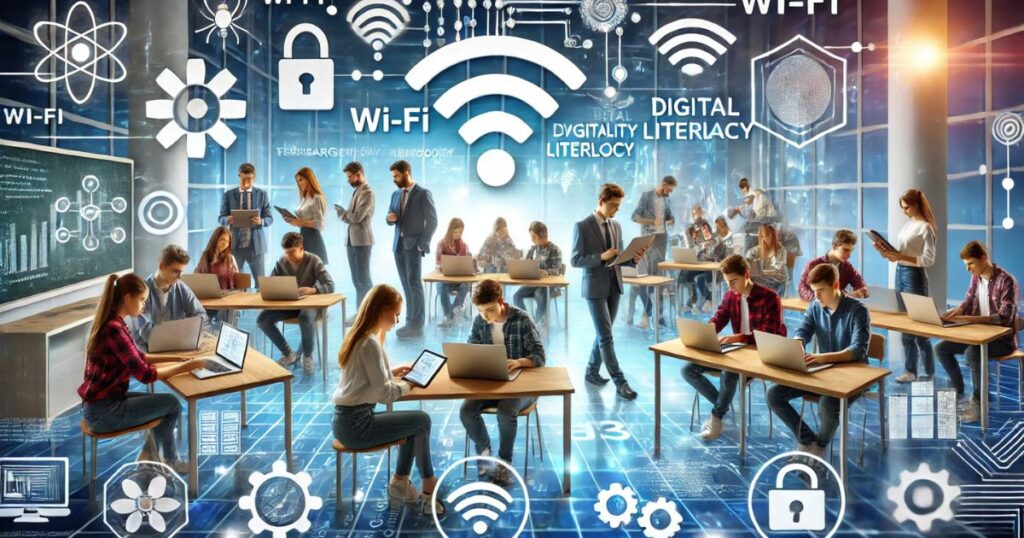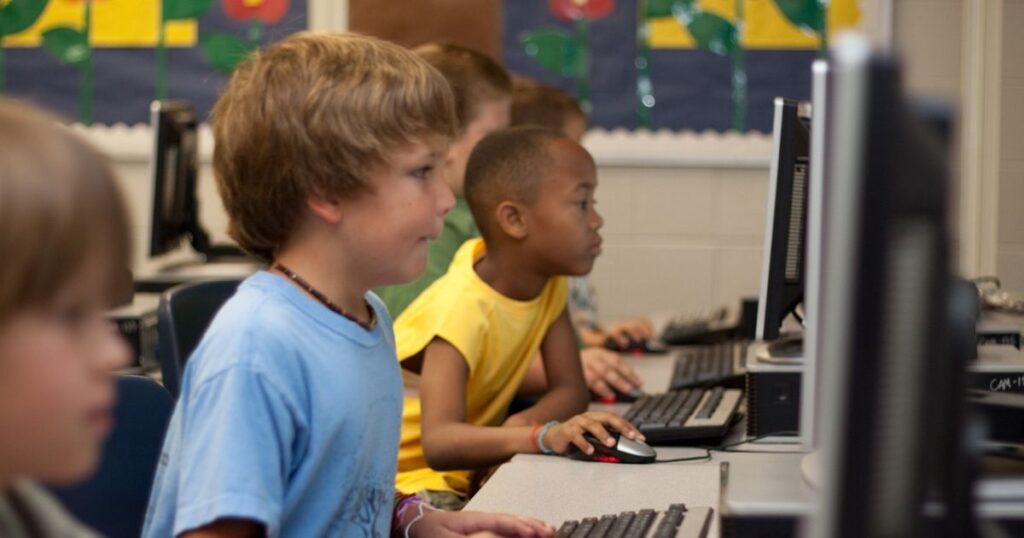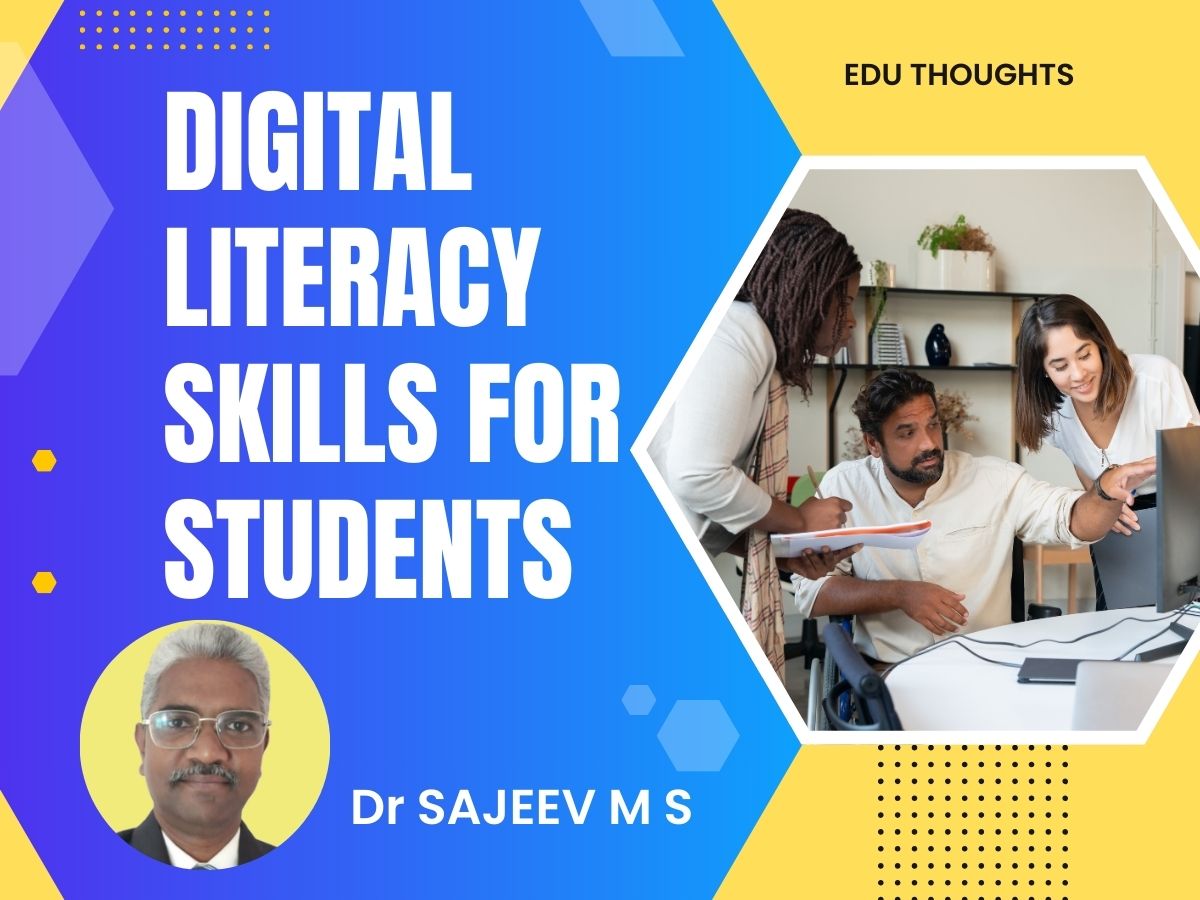Introduction to digital literacy skills for students
Technology is for today’s dynamic world, and the students in the modern world must learn how to cope with these gadgets. The world has become a global village and technologies are the order of the day. Students require a proper understanding of digital tools, particularly in school and any job they pursue. Digital literacy skills for students lead to high academic achievements and career progress. As this article aims to discuss why digital literacy matters, this article outlines the core competencies for learners in a world that is increasingly becoming connected.
Importance of Digital Literacy Skills for Students
- Digital literacy helps students to create technology users to guide their academic and personal transformations.
- Mastering essential digital skills, such as online research, data analysis, and digital communication, unlocks new opportunities.
- Understanding digital citizenship and online safety is crucial for responsible and ethical digital behaviour.
- Developing a strong digital footprint enhances students’ academic and professional prospects.
- Incorporation of digital literacy fosters students for practical life as they can face the digital world responsibly.
Mastering the Digital World: A Necessity for Students

It is captured that in contemporary society, ignorance of how to work with technology is unequal to death. Digital literacy is much more than being able to use a computer; it’s about applying technology-based strategies for learning, interacting, and problem-solving. All the above skills are essential for both education and employment endeavors.
To learn more about why digital literacy is important check The Importance of Digital Literacy.
Learning About the Significance of Digital Literacy
There is an ability to understand, manage and employ information technologies in learning and knowledge processing throughout a person’s daily practice. Students with these skills can:
- Search for information on the Web.
- Successfully work in teams while using technology.
- Delight with digital solutions to problems.
Read more on the extended meaning of digital literacy at UNESCO Digital Literacy Initiatives.
Essential Skills for the Digital Environment
To succeed in today’s world, students must master various digital skills, including:
Online Research and Information Management
- Competencies in search for, validation of, and synthesis of information from various sources available in the internet.
- Resource: Google’s Search Education.
Data Analysis and Visualization
- Familiarity with digital tools, for example, Excel or Tableau to gather and analyze data in a particular field.
- Resource: Data Visualization Resources for Students.
.Digital Content Creation
- Blogs, videos, websites and all other forms of digital content that can be produced and disseminated.
- Resource: Canva for Education.
Coding and Programming
- Knowledge of programming concepts and some form of coding languages such as Python, scratch or HTML.
- Resource: Learn Coding with Scratch.
Cyber security Awareness
- They shall learn about ways to protect themselves and their information while doing business on the Internet.
- Resource: Stay Safe Online
Disclosure of Academic and Career Advancement

Digital literacy creates opportunities in the fields of academic as well as professional development. Here’s how:
- In Education: Internet resources enhance performance in class. By collaborating, or working together digitally, we create connections and relationships worldwide and from diverse backgrounds.
- In Careers: Employers are interested in digital skills in preparation for virtual internships, remote work, and general enhancement of work.
Online Safety and Digital Citizenship
Exploring Information and Interaction and Justice in CYBERSPACE
The fact is that being a responsible citizen of the digital world is very important. Here’s how students can manage their online presence:
1. Copyright protection & staying safe on the internet
- Think before you post. A person has a reputation – and this reputation can be influenced by his digital footprint.
- Resource: Tips for Managing Your Digital Footprint.
Staying Safe Online
- Do not cyberbully and be safe online. Work on the privacy settings, and always use or create a strong password for every account created online.
- Resource: Cyberbullying Prevention Tips.
As a result of the course, students will be able to create and sustain a positive, beneficial online persona.
Conclusion
It is for this very reason that digital literacy should be considered to be the prerequisite of academic and career success in the modern world. If students know the important things, basic skills, and the risks with body liberty, they are free to have the future they want. Be a champion of digital literacy today so you can pave the way for success tomorrow!
You may also like to read:- Building a Better Classroom with Teacher’s Skills
- How to Dominate Your Online Business With 5 Proven Digital Marketing Strategies
- How to Cultivate Critical Thinking and Problem-Solving Skills in Classroom
- Top Proven Mental Health Strategies for Schools in 2025-26
- Time Management for Teachers: How to Plan, Prioritize, and Perform Better
- How Parental Involvement in Education Shapes a Child’s Growth and Success
FAQ
1. What is digital literacy and why is it crucial for students?
‘Technology’ termed as digital literacy therefore means that the person should be able to handle the gadgets well. It also means being able to post information on the internet and also know whether that particular information is true or not. It’s important for students to acquire these skills for the school and workplace in the world of the Internet.
2. What are the essential digital skills students should cultivate?
They have to understand how to search for material on the Internet, how to use it, and how to analyze it. They should also understand how to write content, and code, as well as stay safe behind a computer screen. These skills make you fit in the current employment world and increase your chances of gaining an employment opportunity
3. How can digital literacy unlock academic and career opportunities?
The new academic period promotes digital competence to get higher grades and more opportunities to get a job. That way, you are allowed to apply online resources to learning and work purposes. It also makes you ready
4. Why is it important to navigate online safety and develop digital citizenship?
So, following our principles of being a good digital citizen, we need to know what we are doing online. It is all about privacy how to protect it, and how to use social networks as well. That means you get to take on the internet with confidence and also with a certain measure of care.
5. What are some key keywords related to digital literacy for students?
Important terms include digital skills, online communication, and information literacy. Other keywords are problem-solving, critical thinking, and digital content creation. Also, coding, cyber security, and staying safe online are crucial. These skills help you succeed in school and work



